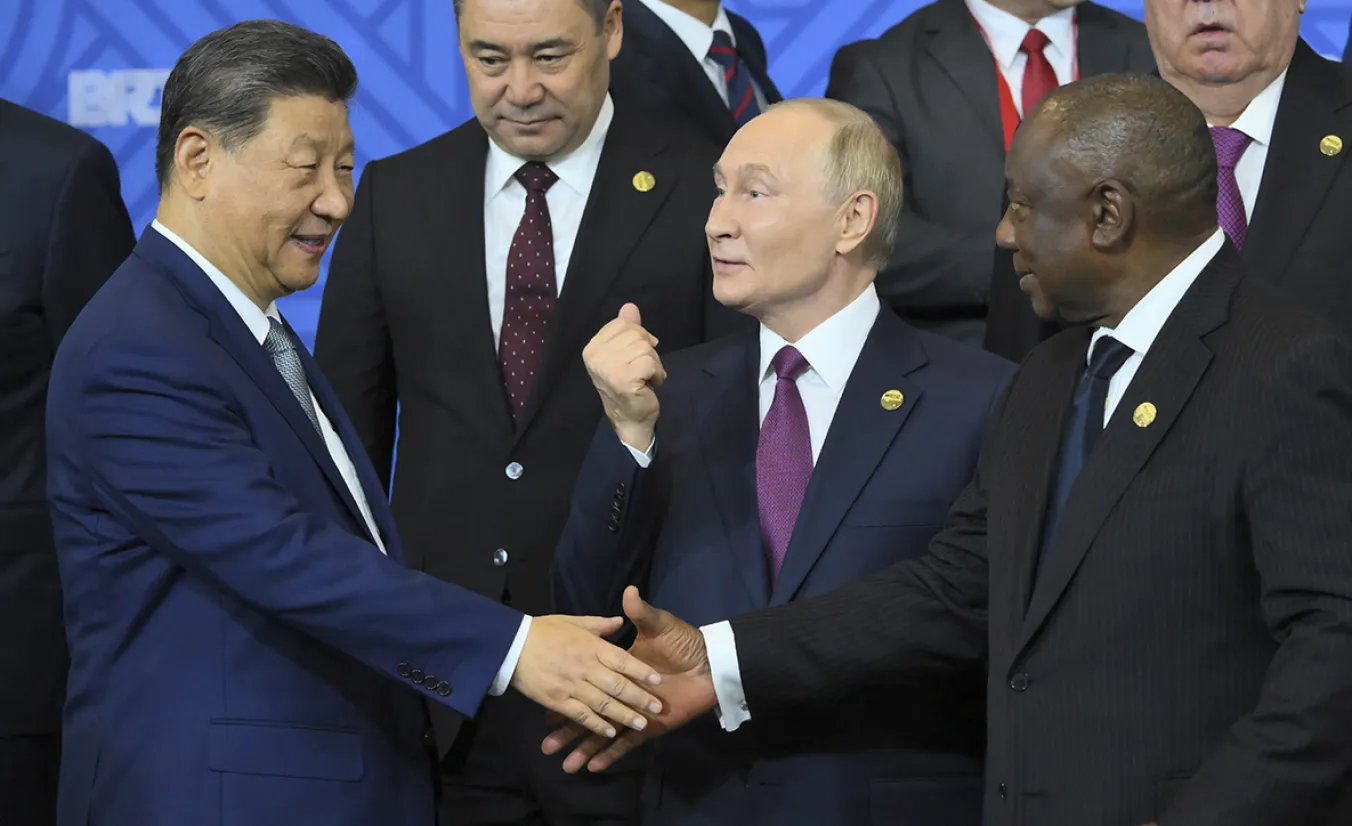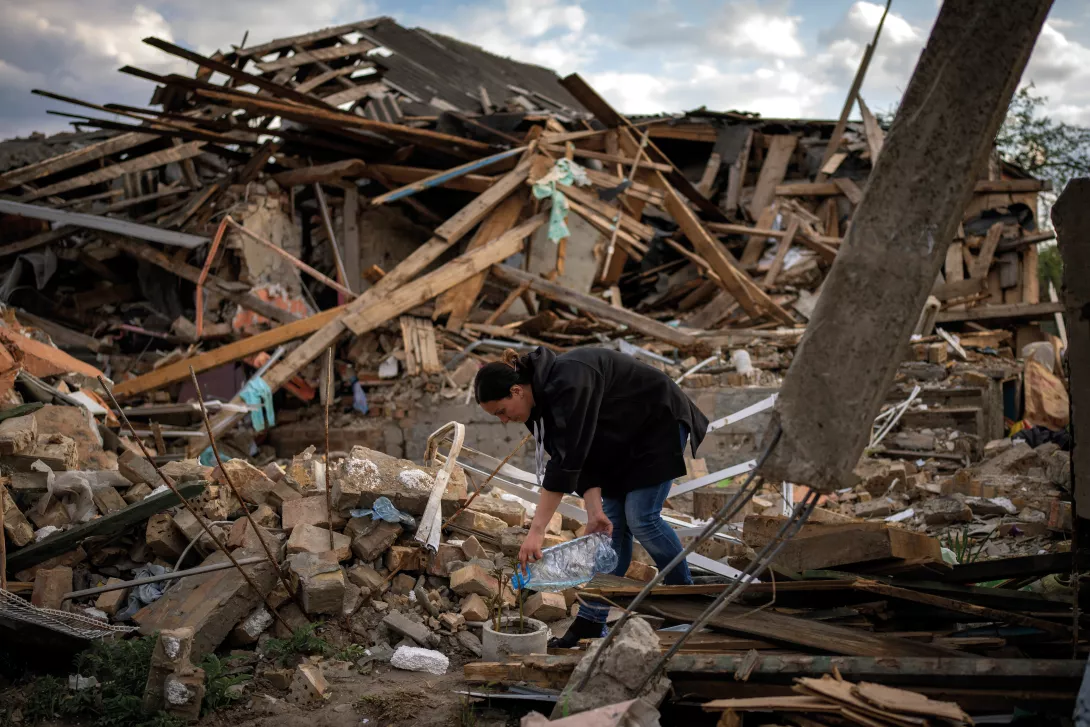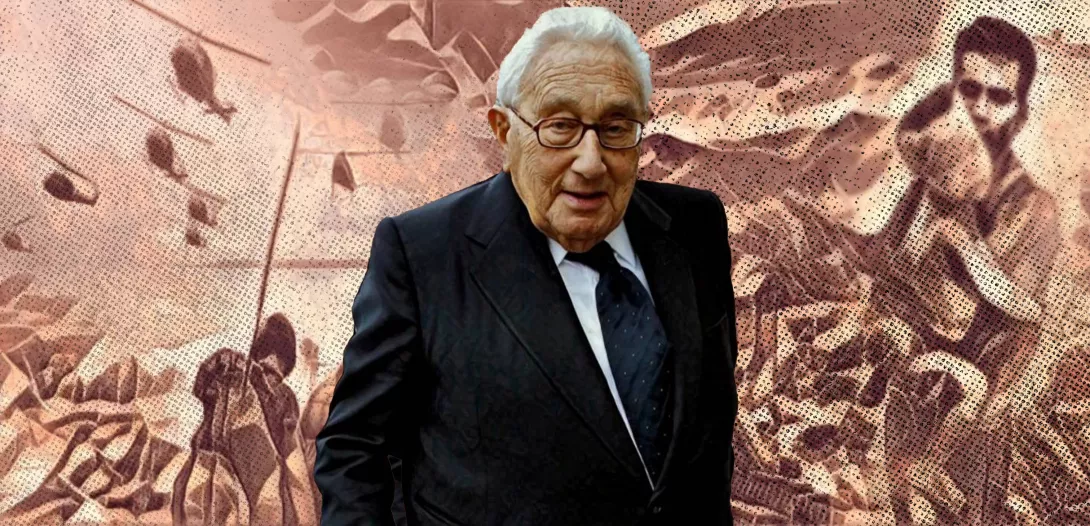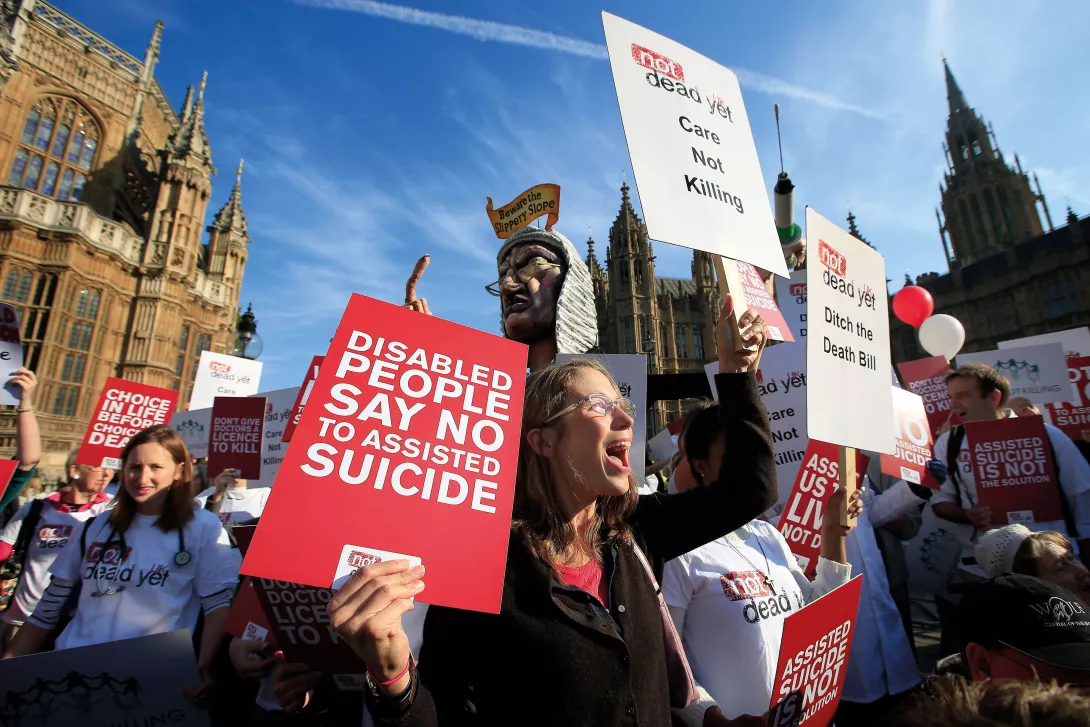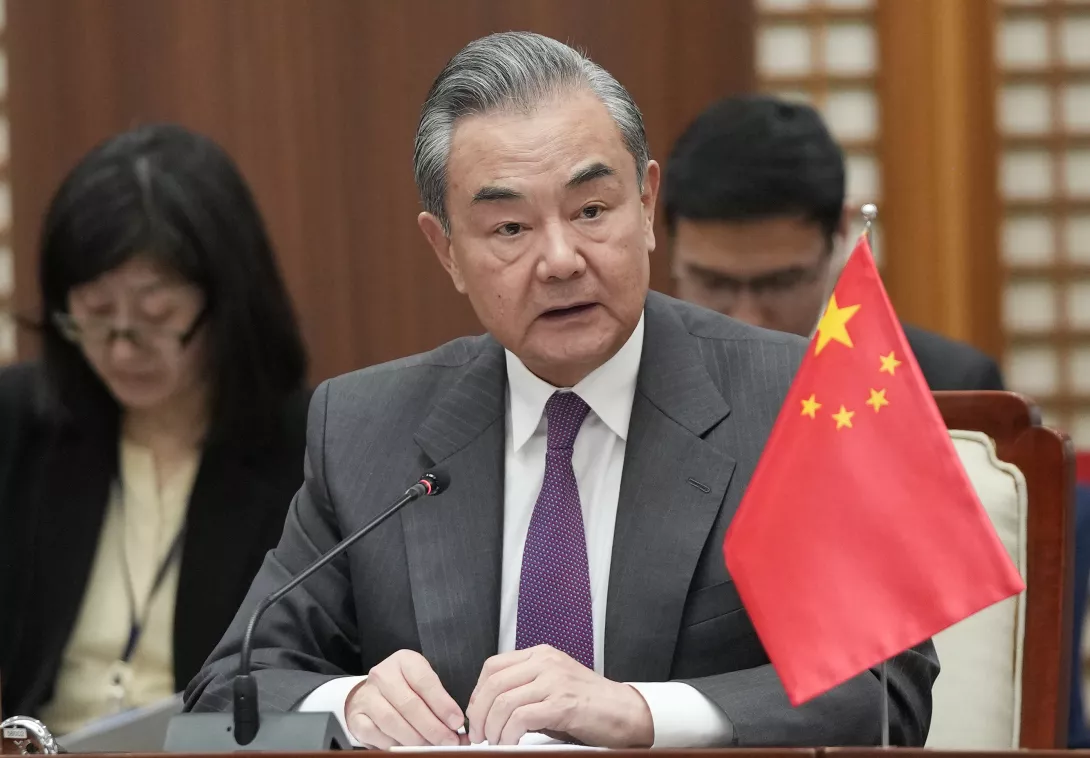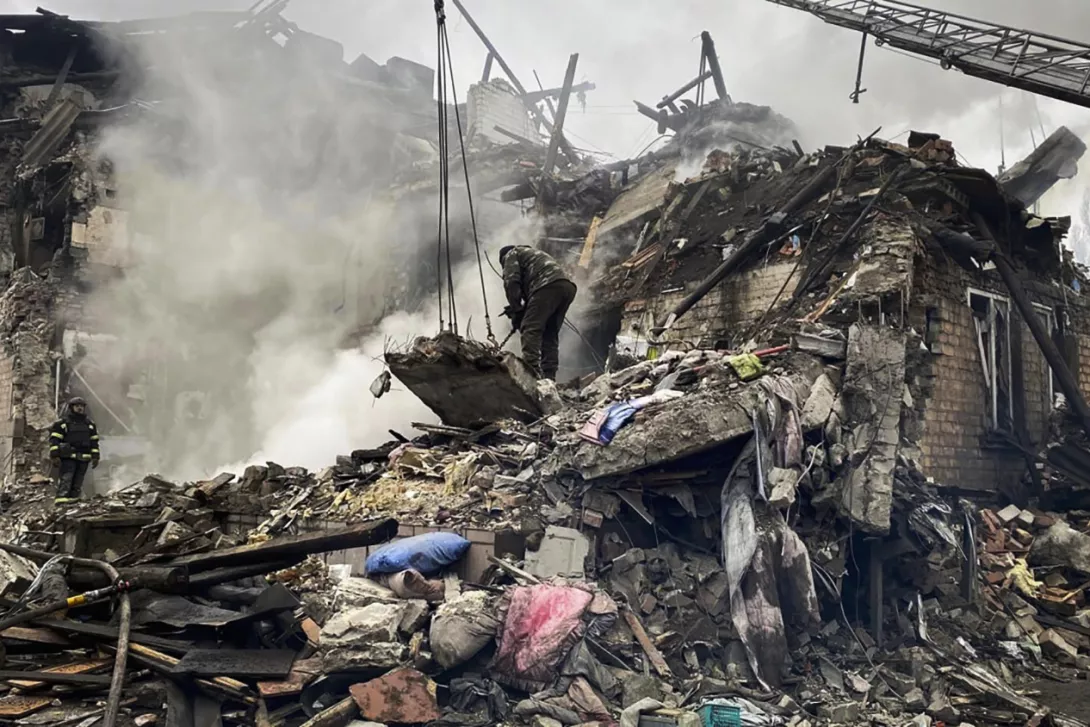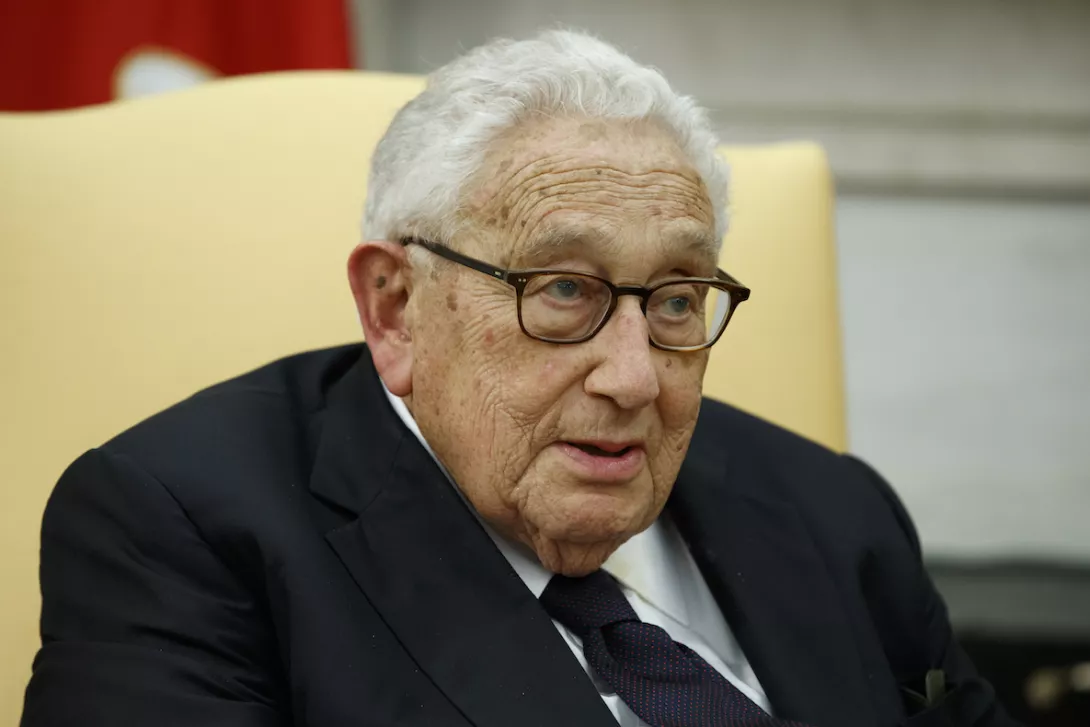
WHEN it comes to foreign policy, Henry Kissinger is one of the most important voices in the US.
For years, he was national security adviser. He was also secretary of state under presidents Richard Nixon and Gerald Ford.
In the early 1970s, he masterminded the US-China rapprochement to isolate and weaken the then Soviet Union.
Kissinger is not a softy. He was directly involved in the 1973 coup in Chile and also in the extremely brutal war in Vietnam. On Friday May 27, this former statesman turned 100.
Towards a confrontation between the US and China?
On the occasion of his centenary, Kissinger gave an extensive interview to the Economist. In it, he expressed his deep concern about the current world situation, and more specifically the possible confrontation between the two current superpowers: the US and China. Kissinger thinks “both sides have convinced themselves that the other represents a strategic danger.”
Beijing has come to the conclusion that the US will do anything to keep China down and will never treat it as an equal.
In Washington, in turn, there is a belief that China wants to supplant the US as world leader.
Kissinger is particularly alarmed by the increasing competition between the two superpowers to gain technological and economic superiority. He fears that this rivalry will be further fuelled by artificial intelligence.
He notes how power relations and the technological basis of warfare are evolving very rapidly. As a result, there is no longer any fixed principle on the basis of which countries can create order. And if they do not find that order, they may resort to violence.
According to Kissinger, “we’re in the classic pre-world war one situation where neither side has much margin of political concession and in which any disturbance of the equilibrium can lead to catastrophic consequences.”
The difference with then and now is that in a current conflict, we will find ourselves in a situation of “mutually assured destruction.”
The fate of humanity depends on the US and China getting along. And there is not much time. Given the rapid advancement of AI and its potential military applications, he says we only have five to 10 years to find a way of coming to terms with each other.
Diplomacy
Definitely not an uplifting thought. But Kissinger is no doomsayer. The fear of war gives reason for hope. He thinks it is still possible for China and the United States to coexist without the threat of all-out war with each other, albeit that success is not guaranteed.
His rich experience tells him that determined diplomacy is the only way to avoid ruinous conflict.
Ideally, this is done on the basis of shared values. He is convinced that a world order can be created based on rules that Europe, China and India could endorse. Negotiations between the two superpowers can help build mutual trust. That trust will then lead to restraint on both sides.
So negotiating rather than going to extremes in a showdown, because “if you then rely entirely on what you can achieve through power, you’re likely to destroy the world.”
A correct understanding of China
Kissinger warns against misinterpreting China’s ambitions. According to him, the Asian giant is “not heading for world domination in a Hitlerian sense. That is not how they think or have ever thought of world order.” War was inevitable for Nazi Germany because Adolf Hitler needed it, but that is not the case with China.
He views the Chinese system as Confucian, meaning the leaders do not seek domination but seek to achieve the maximum power their country is capable of. They also seek respect for their achievements.
Kissinger thinks the all-or-nothing attitude of the US towards China is dangerous. If the US wants to find a way to live with China, it should not seek regime change.
A collapse of the communist government would lead to civil war for 1.4 billion people and only increase global instability. “It’s not in our interest to drive China to dissolution,” Kissinger says.
Taiwan and AI
Kissinger perceives two areas where the US and China can negotiate to promote global stability: Taiwan and artificial intelligence.
First, Taiwan. Kissinger was the architect of the rapprochement between the US and China in the 1970s.
On the agenda of those talks, Taiwan was one of the important topics. Mao Zedong, China’s then number one, had indicated the necessity of leaving the issue alone for 100 years.
The US recognised that Taiwan was formally part of China while Beijing would make no attempts to annex the island by force.
According to Kissinger, Donald Trump blew up this understanding that had been forged between Nixon and Mao after 50 years.
With his incitement over Taiwan, Trump wanted to elicit trade concessions from China. Joe Biden continues the incitement with more civilised rhetoric.
Kissinger thinks the US incitement over Taiwan is unwise because a war like today’s war in Ukraine would destroy the island and devastate the global economy.
The second area where the two superpowers need to talk to each other is artificial intelligence.
“We are at the very beginning of a capability where machines could impose global pestilence or other pandemics, not just nuclear but any field of human destruction.”
Kissinger thinks AI will become a major factor in security within five years. Just as the printing press played a role in causing the devastating wars of the 16th and 17th centuries, AI will have the potential to cause great havoc.
To reduce the threat of nuclear weapons, the Soviet Union and the US negotiated to control arsenals. Something similar will be needed over AI: “I think we have to begin exchanges on the impact of technology on each other. We have to take baby steps towards arms control, in which each side presents the other with controllable material about capabilities.”
Ukraine
In Kissinger’s eyes the Russian invasion of Ukraine was “a catastrophic mistake of judgement by Putin.” But the West is also to blame: “I thought that the decision to leave open the membership of Ukraine in Nato was very wrong.”
That was destabilising. There was a promise of Nato protection but no plan to realise it. Ukraine was therefore vulnerable while Russia had been infuriated.
Kissinger feels inclined to support China’s peace proposal. While this plan is not taken seriously in the West, Kissinger sees in it a serious intention that may complicate diplomacy around the war, but could also provide exactly the opportunity to build mutual trust between the major powers.
According to Kissinger, the Chinese are serious because they have every interest in Russia coming out of the war unscathed. He also believes that after the phone call between Xi Jinping and Volodymr Zelensky, China does act as a mediator between Russia and Ukraine.
Advantages of the plan are China’s recognition that Ukraine should remain an independent country and its warning against using nuclear weapons. It is not even out of the question that Beijing would accept Ukraine joining Nato.
Kissinger wants to end the war quickly. To achieve lasting peace in Europe, in his view, the West must make two leaps of the imagination.
First, Ukraine must join Nato. This is to protect the country but also to keep it in check. He considers the current situation as dangerous: “We have now armed Ukraine to a point where it will be the best-armed country and with the least strategically experienced leadership in Europe.”
Secondly, Europe must seek a rapprochement to Russia and let it relate in order to create a stable eastern border. There must be a new security structure in central and eastern Europe in which Russia should also find a place.
The media and politics
Kissinger does not have a good word for the media and the political world. He rates the judgement of the media low; they also have no sense of proportion.
When he was in office, the press was hostile to him, but there was dialogue despite this. Today, they have no incentive to be critical. “My theme is the need for balance and moderation.”
But it is especially in politics that things are going badly wrong today. When he was in office, there were friendly ties with leaders of the other party. The political opponent was treated decently. Today, all means are acceptable to floor the political opponent.
Trump and Biden have greatly fuelled polarisation. Kissinger fears this could lead to violence. The US lacks leadership: “I don’t think Biden can supply the inspiration and (…) I’m hoping that Republicans can come up with somebody better. It’s not a great moment in history.”
The US urgently needs long-term strategic thinking: “That’s our big challenge which we must solve. If we don’t, the predictions of failure will be proved true.”
